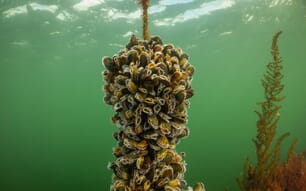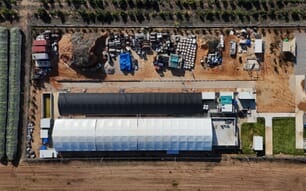The 250,000 m3 capacity structure, which has been developed by SalMar’s subsidiary Ocean Farming, is due to be operational in the second half of this year. Standing 68 m tall, and with a diameter of 110 m it has been hailed by the company as “the first step towards a new era in aquaculture” and a possible means of ensuring the sustainable growth of finfish production.
Constructed by the China Shipbuilding Industry Corporation (CSIS) in Qingdao, the full scale pilot facility is due to be positioned in Frohavet, near Trondheim, where both the biological and technological aspects of offshore fish farming will be tested. The system was the first to gain development licence concessions from the Norwegian Ministry of Fisheries and Coastal affairs and is designed to operate in exposed areas varying from 100-300m deep with a crew of only 3-4 people. The pilot facility will be equipped for R&D activities, with a particular focus on biological conditions and fish welfare.
As statement from SalMar explained: “Aiming to reduce environmental footprints, improve fish welfare and answer acreage challenges, the learning and new solutions from the project could represent a new era in sustainable seafood production – and is potentially adaptable worldwide. In SalMar, we know that as operation starts, we are entering a new challenging phase.”
The project includes a number of partners from the offshore and aquaculture industries, including Kongsberg Maritime, who are responsible for the electrical installations and instrumentation for marine and fish handling systems and have hailed it as a “paradigm shift” for the aquaculture industry.
"The Ocean Farming facility introduces a paradigm shift in salmon farming now, and other fish types in the future. With greater focus on biology and nurturing healthier fish, the concept delivers significantly improved yields that will prove important in the decades to come as part of Norway's strategy to leverage its aquaculture and offshore expertise to meet the challenges of accelerating population growth and the pressures this places on the world's food supply chain," said Egil Haugsdal, President, Kongsberg Maritime.


